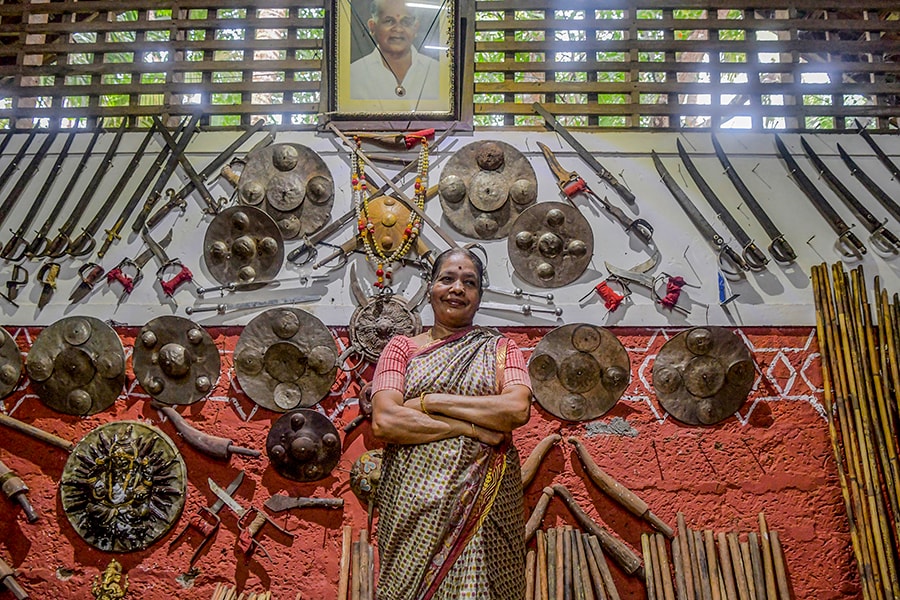
This 78-year-old great-grandmother is keeping an Indian martial art alive
Meenakshi Amma, practitioner and teacher of 'Kalaripayattu', has been a driving force in the revival of India's oldest martial art and in encouraging girls to take it up
 Meenakshi Amma, practitioner and teacher of 'Kalaripayattu', a traditional martial art originated in Kerala, posing for pictures at her family-run Kadathanadan Kalari Sangam school in Vatakara in the Kozhikode district of the state of Kerala
Meenakshi Amma, practitioner and teacher of 'Kalaripayattu', a traditional martial art originated in Kerala, posing for pictures at her family-run Kadathanadan Kalari Sangam school in Vatakara in the Kozhikode district of the state of Kerala
Image: Manjunath Kiran / AFP
Deftly parrying her son with a bamboo cane, Meenakshi Amma belies her 78 years with her prowess at kalari, thought to be India's oldest martial art.
The great-grandmother in Kerala, southern India, has been a driving force in the revival of kalaripayattu, as the ancient practice is also known, and in encouraging girls to take it up.
"I started kalari when I was seven years old. I am 78 now. I am still practising, learning and teaching," the matriarch of the Kadathanad Kalari Sangham school, founded by her late husband in 1949, told AFP.
"When you open the newspapers, you only see news of violence against women," she said.







